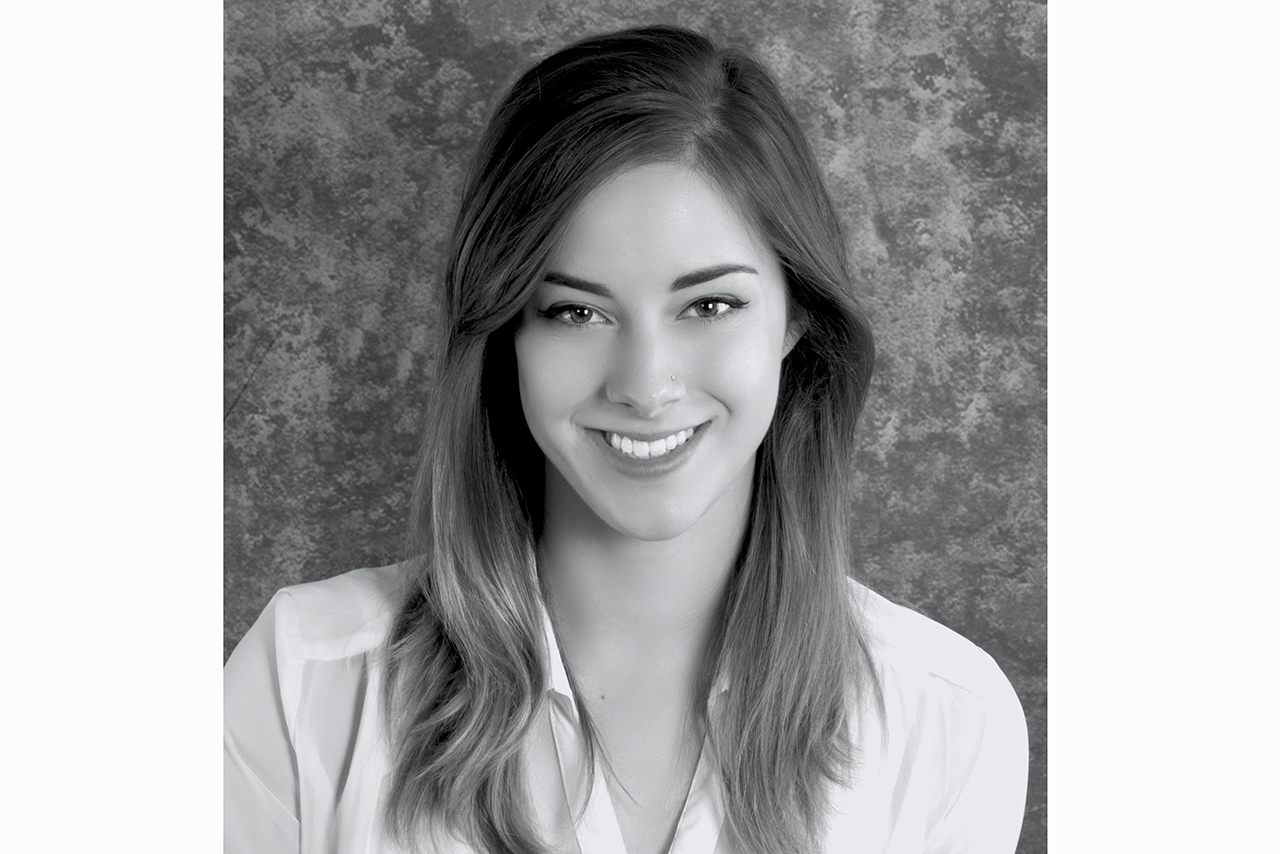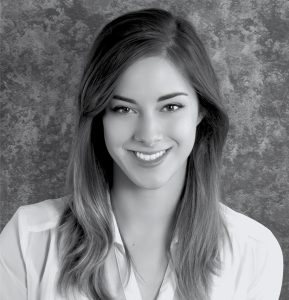School of Music alumna Cassie Wieland ’16 has been selected as a finalist in the American Society of Composers, Authors, and Publishers (ASCAP) Foundation’s Morton Gould Young Composer Competition.
The annual juried national competition attracts many young composers, about 550 applicants this year. The piece that brought Wieland into the finalist round of the competition is a chamber piece that she wrote over the summer, titled “I am not sorry” for violin, cello, and piano.
“I never like to measure success by awards or contests,” said Wieland. “That being said, the piece I submitted for the competition was a piece I wrote for a friend and one that I very much believed in. It is very fulfilling to see that others believed in it too.”
Having grown up in Bloomington, Wieland remembers coming to the Center for the Performing Arts (CPA) from an early age to watch performances.
“The CPA has always held a special place in my heart,” she recalled. “I would go to watch performances by the ISU students who I looked up to so much. I ended up attending ISU for music, and I distinctly remember passing through the CPA one day on my way to a morning class and thinking, ‘I want music that I write to be played here.'”
This goal seemed extremely unlikely at the time as she had never written music before. With the guidance of faculty and mentors within the School of Music, Wieland started composing and ultimately won the ISU Band Composition Competition her senior year.
“One of my most memorable moments at ISU was when the Wind Symphony played a piece that I wrote for them at the Center for Performing Arts,” she said. “The performance of the work that I wrote was so special, not only because of where it was performed, but also because the work was written as a thank-you note to my friends and mentors at ISU, the very people who were performing it. I can’t think of a better way to have concluded my senior year.”
Ultimately graduating with a degree in music composition, Wieland went on to be accepted into the master’s program in music composition at the University of Illinois in Urbana-Champaign, where she is currently a teaching assistant for music theory and aural skills courses, two of the main sequences that every music major must take.
She likes the ability to help students learn.
“It’s interesting to be on the other side of the classes that I took as an undergraduate at ISU not too long ago. It’s a very rewarding experience,” she said.
In addition to her selection as finalists in the ASCAP competition, Wieland has recently been accepted to the Bang on a Can Festival, held at the Massachusetts Museum of Contemporary Arts from July 17–August 6 this year. A festival dedicated to contemporary music, the selection process requires submitting a portfolio that includes three recent pieces.
“To be honest, I had no expectation of getting in,” she said. “This festival is very popular, with only 8-10 composers accepted each year. I am so honored to be one of them.”
During this festival, Wieland will have the opportunity to work with composers David Lang, Michael Gordon, Julia Wolfe, and special guest composer Louis Andriessen. Wieland is beyond thrilled to work with these artists.
“It’s a very humbling experience to hear something you worked on alone for hours finally exist in the real world.”
“David Lang, Michael Gordon, and Julia Wolfe have been three of my favorite composers since I started writing. They have been huge influences on my work and on the way that I think about music. Because I connect with their music on such a personal level, I am so excited to be working alongside them at this festival.”
Her hope is that by working with these composers and with the other people at the festival she can learn more about how to better focus her craft, how to successfully collaborate with other artists, and how to push her own artistic boundaries. As part of her acceptance, Wieland will compose a new, six-minute piece that will be rehearsed and performed at the festival.
From an incredible dream to having her compositions selected from hundreds of submissions, Cassie shares a bit of her writing process.
“People asking me to write music for them is equal parts exciting and scary. The people who have asked me to write for them so far have mostly been friends, which makes the writing process a lot of fun. After a person asks me to write a piece for them, we usually sit down and discuss length, instrumentation, and when/where they plan on performing the music. I like to keep the performer in mind while I’m writing, and incorporate aspects of their personality and playing style into the music.”
When asked about the experience of seeing her work come alive Wieland replied, “Having my pieces performed publicly is a very interesting experience that I can’t quite explain. The music is never exactly how you expect it to sound- there are moments when you think wow, that sounded way better than I thought it would, and there are moments where you think the opposite. It took me a while to get used to that, to be honest.”
She has grown from each opportunity.
“Every new performance becomes a learning experience,” she said. “You get to hear firsthand what works and what doesn’t, and you also get to share a new and somewhat intimate moment with both the performers and the audience. It’s a very humbling experience to hear something you worked on alone for hours finally exist in the real world.”


